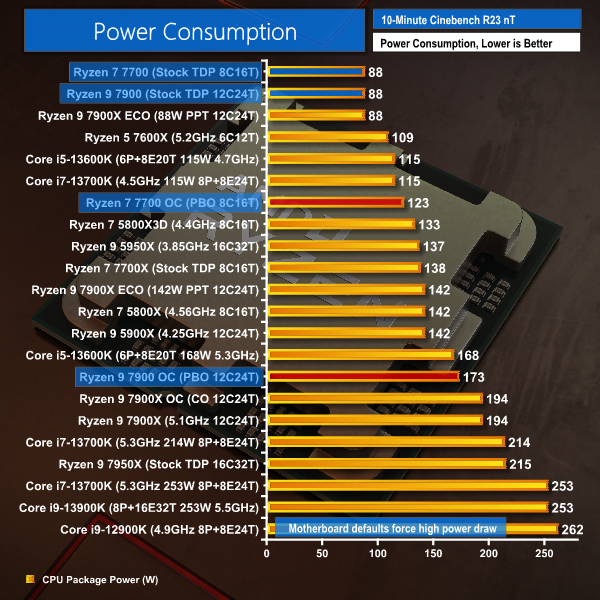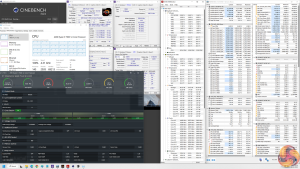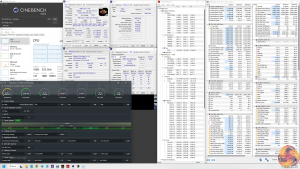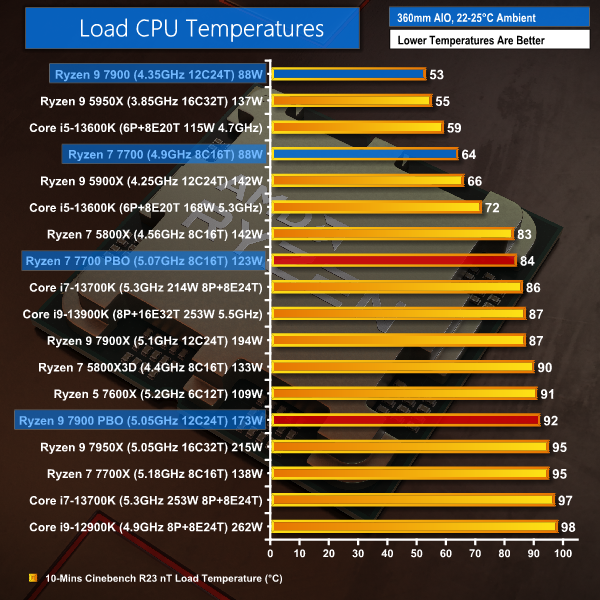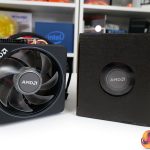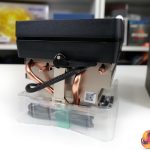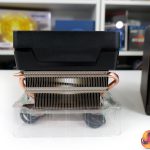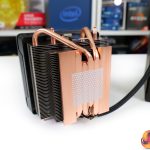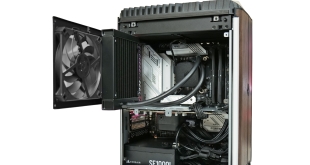For CPU load results, we read the power draw after running 10 minutes of the Cinebench R23 nT all-core rendering test. The same test parameters are used for temperature readings.
The power consumption of our entire test system (at the wall) is shown in the chart. We also include the reported CPU Package Power.
Power Consumption
Power draw readings are accurate to around +/-5W under heavy load due to instantaneous fluctuations in the value.
Looking at power consumption, the new 65W TDP Ryzen 7000 chips are excellent. 65W TDP in the AMD design translates into 88W of allowable package power.
This is an incredibly low power draw number by modern standards, and it makes the non-X parts PSU-friendly by even Ryzen 5 and Core i5 standards.
The Ryzen 9 7900X, for example, guzzles more than twice the power of the 7900 under stock conditions. That is huge!
Zen 4 has excellent abilities to run at reduced power levels.
Temperatures
Temperature recordings were taken using 360mm AIO CPU cooler. Ambient temperatures were around 22-25°C.
Modest power draw comes with the benefit of tolerable CPU temperatures. The stock-clocked Ryzen 9 7900 is close to 50C running temperature in our reasonably hot room ambient.
Once again, we see the single-CCD Ryzen chip running hotter; the 7700 is around 10 degrees higher operating temperature than the 7900 at the same power level.
PBO removes the power shackles and treats these non-X chips more like their X siblings. As such, it comes as no surprise to see the Ryzen 7 hitting 84C while the Ryzen 9 runs over 90C.
Simply put, the included Wraith Prism cooler will have no problems running these chips at sensible temperature levels whilst also maintaining preferential clock speeds thanks to the Precision Boost 2 algorithm.
And if you have a better CPU cooler – perhaps afforded by the cheaper cost of these non-X processors – there is headroom afforded via PBO overclocking.
 KitGuru KitGuru.net – Tech News | Hardware News | Hardware Reviews | IOS | Mobile | Gaming | Graphics Cards
KitGuru KitGuru.net – Tech News | Hardware News | Hardware Reviews | IOS | Mobile | Gaming | Graphics Cards


